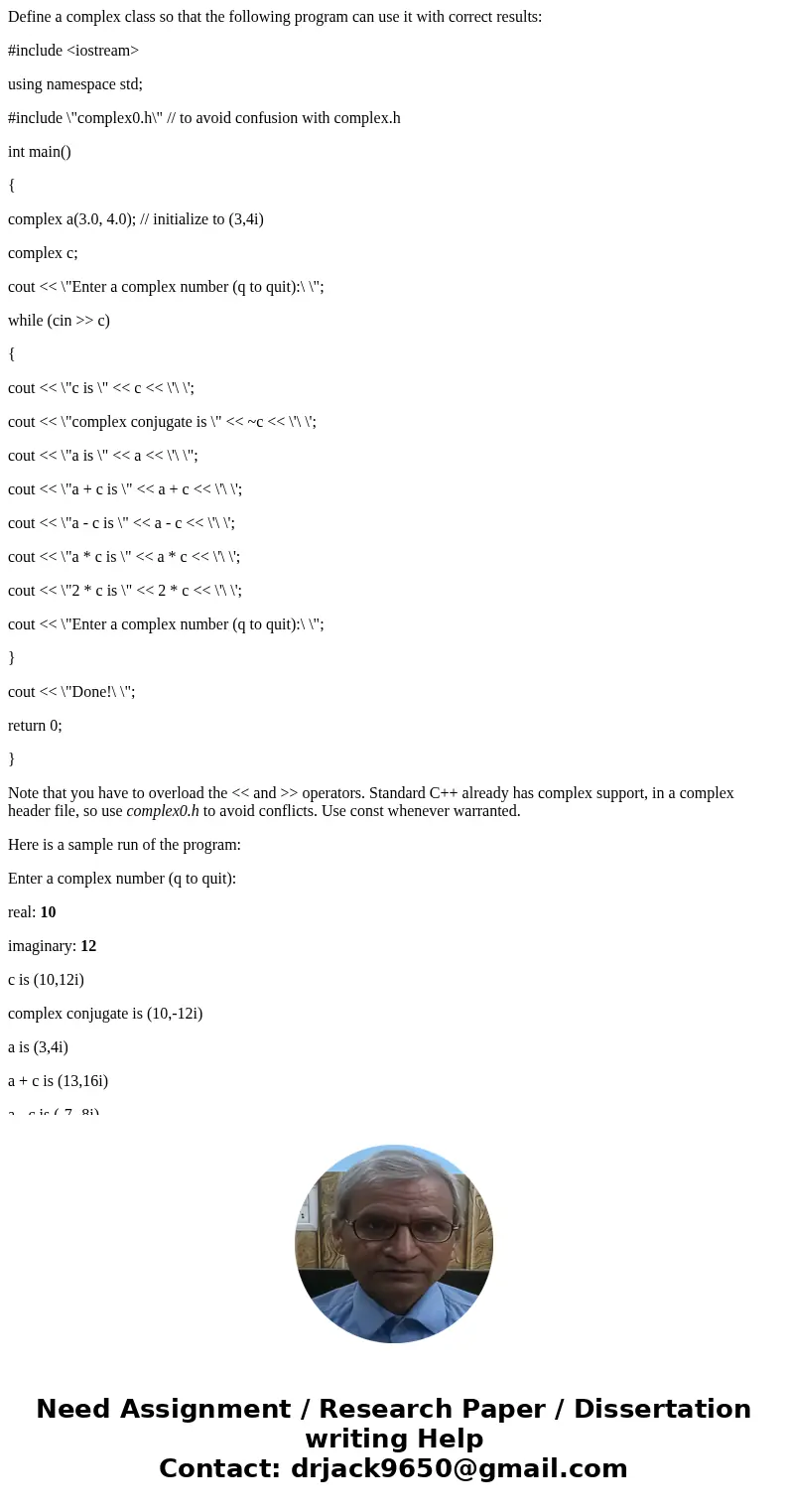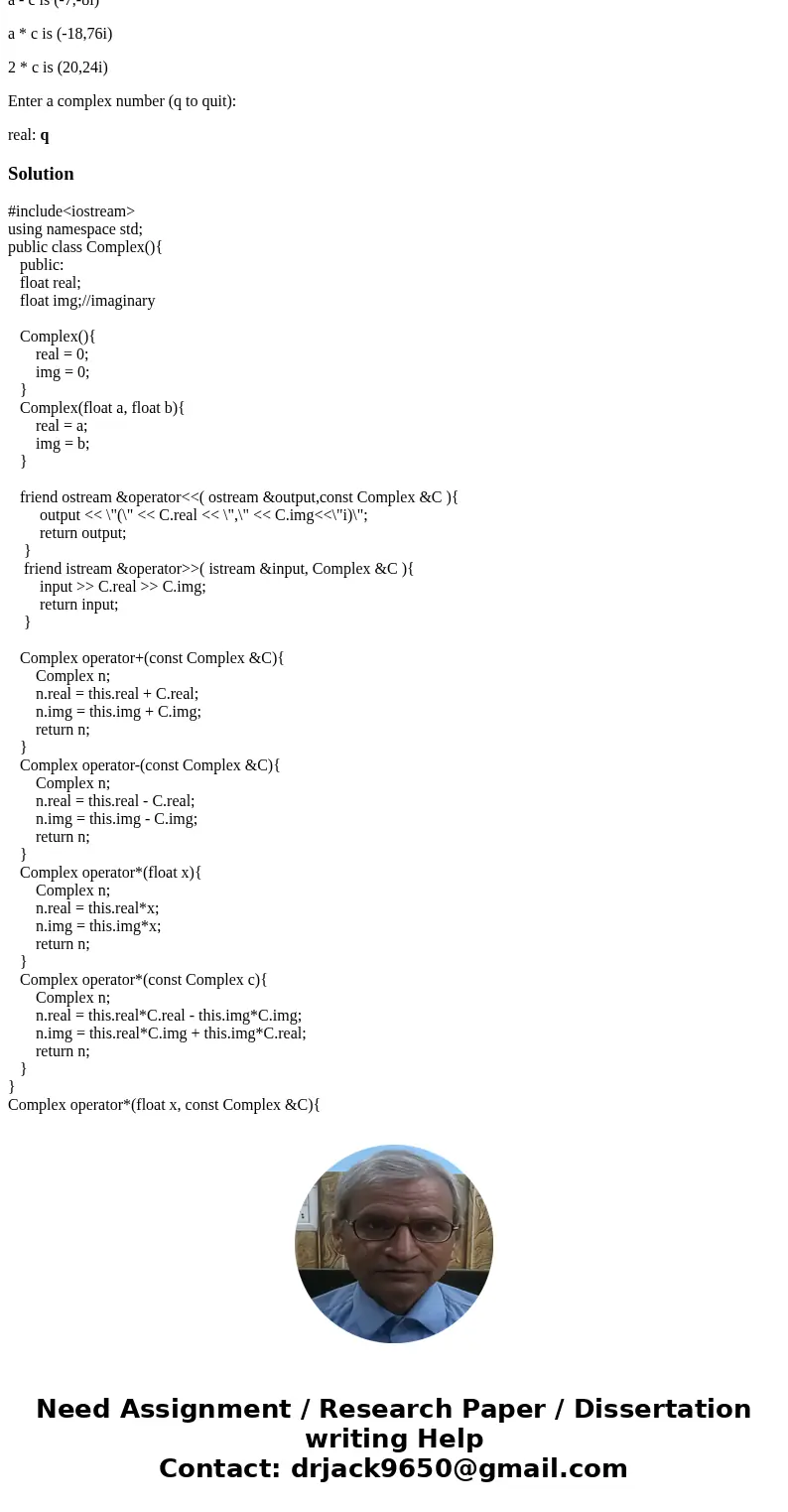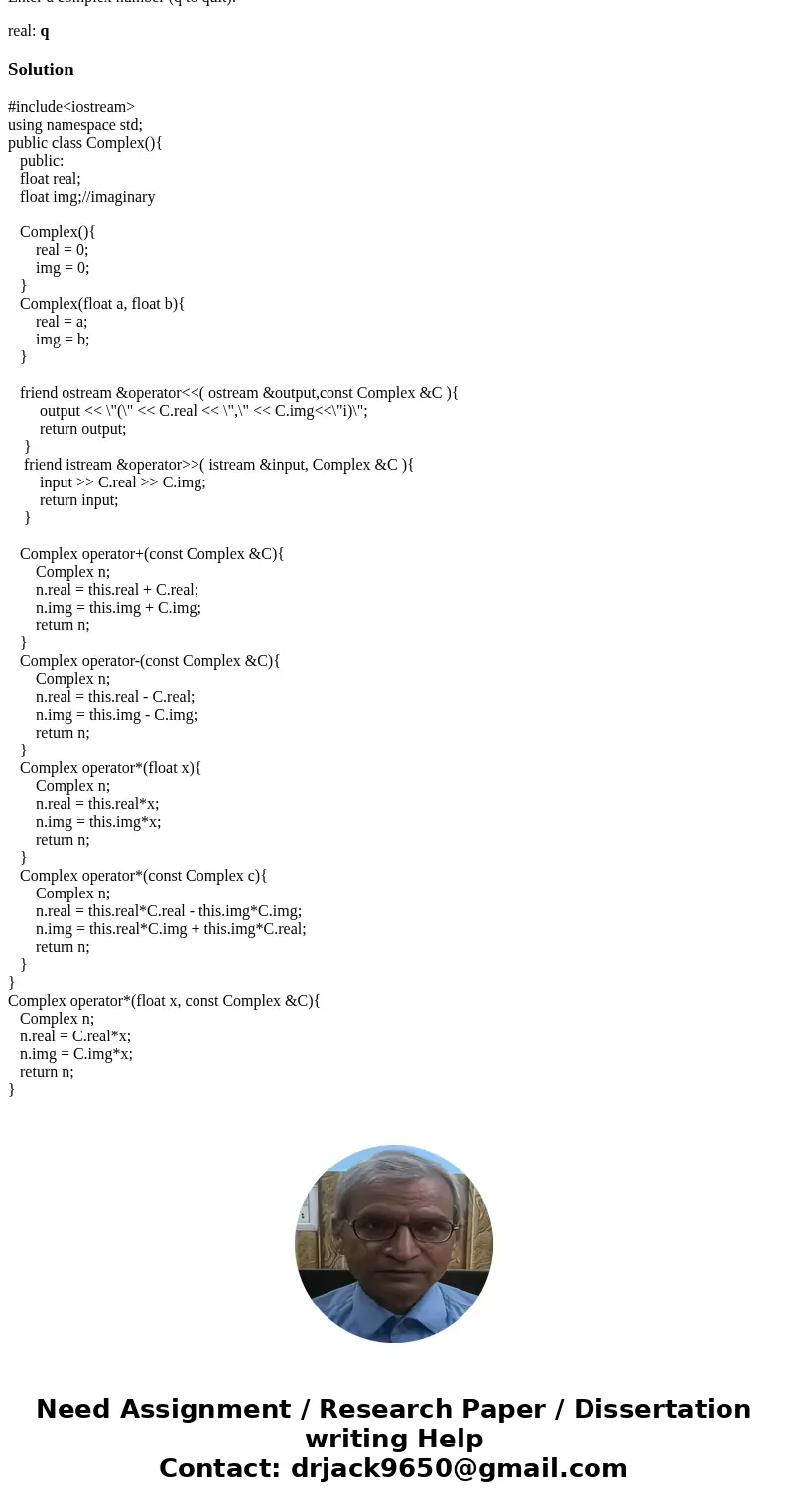Define a complex class so that the following program can use
Define a complex class so that the following program can use it with correct results:
#include <iostream>
using namespace std;
#include \"complex0.h\" // to avoid confusion with complex.h
int main()
{
complex a(3.0, 4.0); // initialize to (3,4i)
complex c;
cout << \"Enter a complex number (q to quit):\ \";
while (cin >> c)
{
cout << \"c is \" << c << \'\ \';
cout << \"complex conjugate is \" << ~c << \'\ \';
cout << \"a is \" << a << \'\ \";
cout << \"a + c is \" << a + c << \'\ \';
cout << \"a - c is \" << a - c << \'\ \';
cout << \"a * c is \" << a * c << \'\ \';
cout << \"2 * c is \" << 2 * c << \'\ \';
cout << \"Enter a complex number (q to quit):\ \";
}
cout << \"Done!\ \";
return 0;
}
Note that you have to overload the << and >> operators. Standard C++ already has complex support, in a complex header file, so use complex0.h to avoid conflicts. Use const whenever warranted.
Here is a sample run of the program:
Enter a complex number (q to quit):
real: 10
imaginary: 12
c is (10,12i)
complex conjugate is (10,-12i)
a is (3,4i)
a + c is (13,16i)
a - c is (-7,-8i)
a * c is (-18,76i)
2 * c is (20,24i)
Enter a complex number (q to quit):
real: q
Solution
#include<iostream>
using namespace std;
public class Complex(){
public:
float real;
float img;//imaginary
Complex(){
real = 0;
img = 0;
}
Complex(float a, float b){
real = a;
img = b;
}
friend ostream &operator<<( ostream &output,const Complex &C ){
output << \"(\" << C.real << \",\" << C.img<<\"i)\";
return output;
}
friend istream &operator>>( istream &input, Complex &C ){
input >> C.real >> C.img;
return input;
}
Complex operator+(const Complex &C){
Complex n;
n.real = this.real + C.real;
n.img = this.img + C.img;
return n;
}
Complex operator-(const Complex &C){
Complex n;
n.real = this.real - C.real;
n.img = this.img - C.img;
return n;
}
Complex operator*(float x){
Complex n;
n.real = this.real*x;
n.img = this.img*x;
return n;
}
Complex operator*(const Complex c){
Complex n;
n.real = this.real*C.real - this.img*C.img;
n.img = this.real*C.img + this.img*C.real;
return n;
}
}
Complex operator*(float x, const Complex &C){
Complex n;
n.real = C.real*x;
n.img = C.img*x;
return n;
}



 Homework Sourse
Homework Sourse